본문
GSTI International Symposium: "Humans and Interpretation/Translation" (Nov.16-17)
The 2018 GSTI International Symposium was held from November 16 to 17, 2018, hosted by the Graduation School of Translation & Interpretation of Ewha Womans University (Ewha GSTI) and BK21 Plus' Professional Translator Training Team, and organized by the Ewha Research Institute for Translation Studies (ERITS). Under the theme of 'Humans and Interpretation/Translation', a total of 29 speakers from Korean and overseas research institutes gave presentations. Korean and overseas researchers in the fields of interpretation and translation contributed to vibrant discussion as participants, which made the presentations more abundant.
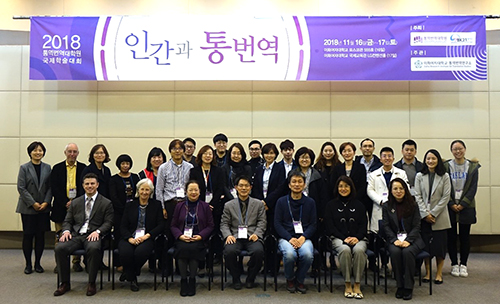
For thousands of years, humans have been interpreting and translating. Interpreting and translating enabled us to exchange information, which led to industrial development and the expanded scope of academia and culture. This symposium was the venue to review what humans have done and can do in the future in the context of interpretation and translation under the theme of 'Humans and Interpretation/Translation'. The opening remarks were delivered by Professor Young-ju Cho of ERITS, followed by the welcoming speech by Professor Seuk-pyo Hong, Dean of Ewha GSTI. The dean introduced an example from the poet & translator Eok Kim from the 1930s, who redefined poetic literature as a piece of recreation in his book 'Theory of Poem Translation'. The dean emphasized the characteristics and uniqueness of translation and expressed his hope to re-establish the status of 'interpreting and translation' as an academic discipline in a new cultural environment today.
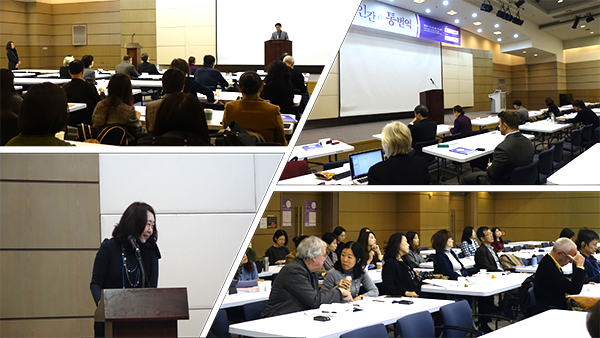
In this symposium, research in a unique area carried out by humans – interpretation and translation – was introduced. Other researchers brought vibrant discussions with participants focusing on: seeking the juncture where humans and technology can cooperate as machine translation emerges; ways to link such technology with interpreter & translator training; and corpus-based activities. In the morning session, the keynote speech was delivered by President of the of the Literature Translation Institute of Korea, Sa-in, under the topic of "Translation of Reciprocity and Mutual Existence", followed by "The Era of 'Extranslation' ? Japanese Contemporary Literature Facing the World" by Cécile Sakai of Diderot University in Paris, which introduced a great insight regarding literature translation. Professor Jiang Hong of the Chinese University of Hong Jiang discussed the status and the future plan of interpreting training of the International Association of Conference Interpreters (AIIC). Professor Kyo Kageura (University of Tokyo) suggested a new system and direction in translator training by using meta-language.
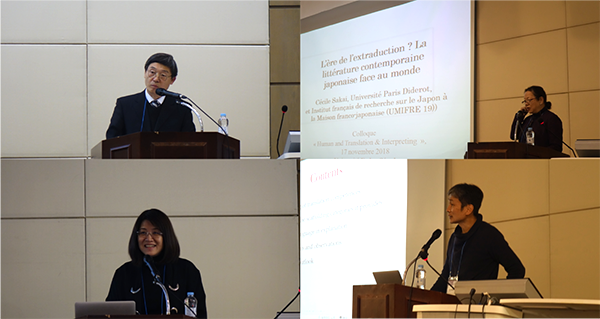
In the afternoon session, Professor Kayo Matsushita (Rikkyo University) suggested a new possibility by combining technology with interpreter training by sharing her research on self-assessment and self-feedback by utilizing parallel corpus, established based on IBM Watson's Speech to Text technology and annotation software. The session continued with Major Bradley Miller of the USAG sharing his experience and insight while working with interpreters from his time during the war in Afghanistan, which created a humanity-based consensus in interpreting with participants. Also, there were many other interesting research projects in the spotlight presented by: Professor Helen Slatyer (Macquarie University) discussing interpreting for medical communications; Professor Masaru Yamada Yamada (Kansai University) under the topic of 'Neuroimaging Translator Cognition while Post-editing Neural Machine Translation: How Should Human Translators Interact with Increasingly Human-like Translation Technology'; and Professor Honglian Jin (Tianjin Normal University) talking about Chinese translation of predicates in contrastive linguistics.
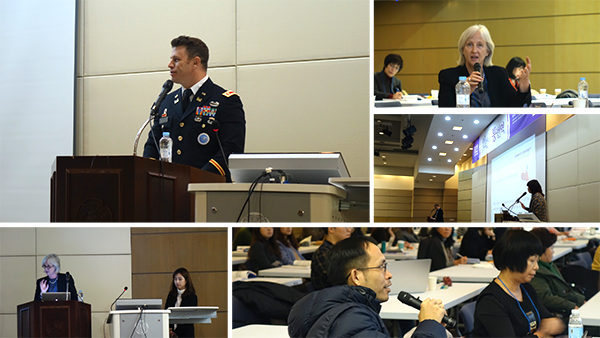
Meanwhile, there was additional interesting research introduced during the breakout sessions and new researcher session. Thanks to the participants' active Q&A sessions throughout all sessions, both days of the symposium are regarded to have ended with great success.
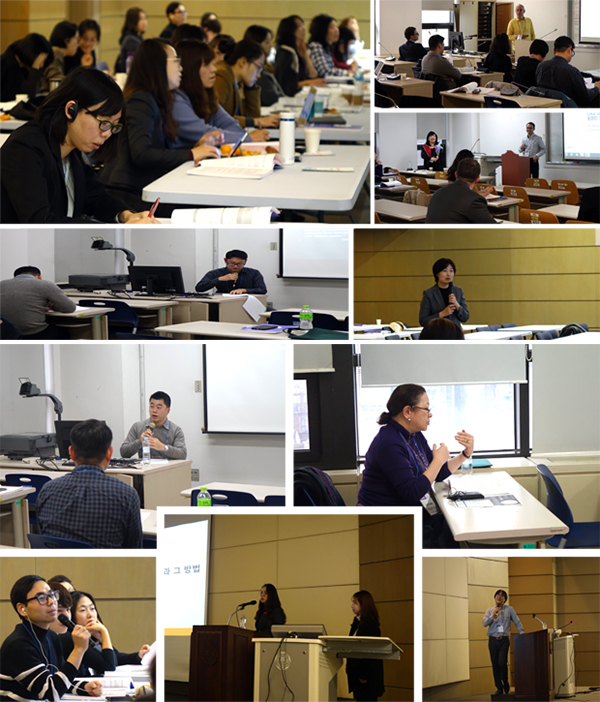
· http://gsti.ewha.ac.kr/
· http://home.ewha.ac.kr/gstibk/
· http://cms.ewha.ac.kr/user/indexMain.action?siteId=erits













